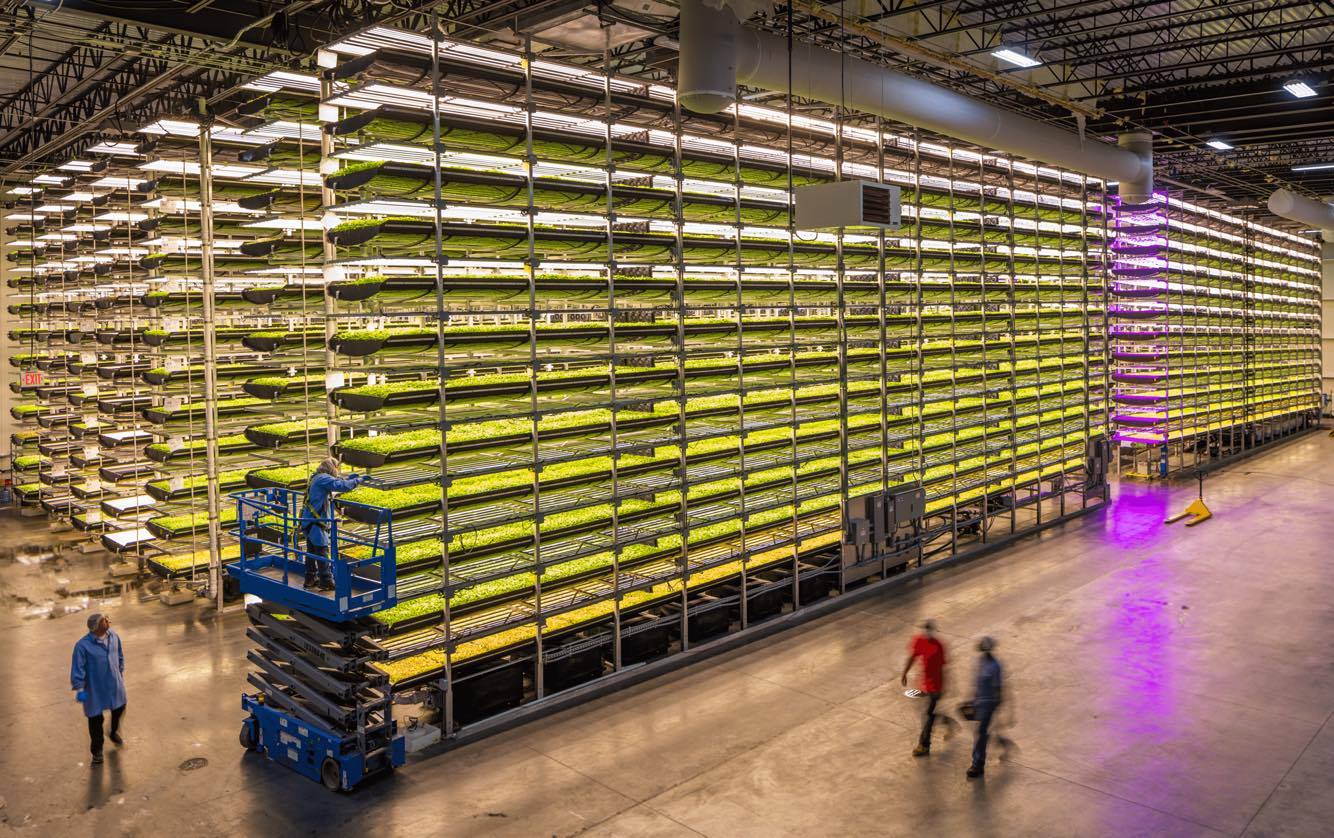AeroFarms, the US indoor farming company, has raised $100m to further expand its warehouses of stacked growing trays and branch out into different produce.
The 15-year-old New Jersey-based company is one of the pioneers of indoor farming, where vegetables are grown without pesticides, under artificial light, and near consumers.
The latest fundraising will value AeroFarms at $500m post-funding, according to one person familiar with the process, and was led by the venture capital arm of Ingka Group, the parent company of retailer Ikea, an existing investor.
Other existing investors include UK-based Wheatsheaf and ADM Capital, as well as Mission Point Capital, China’s GSR Ventures and AllianceBernstein, which will also participate in the capital round.
“One of the keys of this raise was to align ourselves with patient capital, that is willing to understand how we make a bigger impact,” said David Rosenberg, chief executive of AeroFarms.
The company’s main products include rocket, watercress and baby kale sold under the Dream Greens brand at retailers including Whole Foods and ShopRite.
AeroFarms distributes to a “hyperlocal” range of 50 miles from any of its facilities, according to Marc Oshima, chief marketing officer. It will also start to supply Singapore Airlines in September and is planning to start growing berries.
Despite the high energy costs, investors have been drawn to indoor farming start-ups by their low water usage and high yields, at a time when concerns are growing about climate change and feeding an expanding population.
AeroFarms’ funding, handled by Morgan Private Ventures at JPMorgan Private Bank, follows the capital raising by Berlin based InFarm, which closed a $100m round earlier this month led by Skype founder Niklas Zennström’s investment firm Atomico.
Ocado, the UK online supermarket, recently announced it would put £17m into indoor farms, including a stake in vertical farm Jones Food in UK’s Scunthorpe, while Scottish vertical farm technology start-up Intelligent Growth Solutions, raised £5.4m.
Alongside plant-based meat substitutes and online market places for grains, vertical farming is a part of agriculture and food production which is being transformed by technology, especially artificial intelligence and data analysis.
Leading technology investors and Silicon Valley entrepreneurs are investing in the arena, including Google’s venture arm GV and Uber boss Dara Khosrowshahi, who both backed New Jersey-based Bowery.
In California, Plenty found support in Japan’s SoftBank, former Google chairman Eric Schmidt’s Innovation Endeavors and Amazon founder Jeff Bezos, pushing up the valuation to $500m, according to corporate data service Pitchbook.
Despite the excitement, the sector is littered with bankruptcies because of the high costs of initial investment into the facilities as well as expensive running costs, including energy to power the LED lights and ventilation, as well as labour. Vertical farms also have to be competitive on price to attract supermarket shoppers.
“I wouldn’t be surprised if 90 per cent of the players out there went out of business over the next 3 years,” said Mr Rosenberg.
In the US, FarmedHere became one of the more high profile closures over the past few years, while in Europe, Sweden’s Plantagon ceased trading earlier this year.
Jonathan Webb, the founder of AppHarvest, a start-up that is building a 60-acre greenhouse in rural Kentucky to grow tomatoes, said he had opted against vertical farming because of the high utility charges and labour costs of operating in and around urban areas.
Indoor farming makes more economic sense where outdoor and greenhouse farming are difficult or very expensive. In the Middle East, for example, where farming leafy greens outdoors is virtually impossible in the desert heat, vertical farms would make sense as an investment, said Erik Kobayashi-Solomon, founder of IOI Capital which invests in climate change mitigating companies but is not a backer of a vertical farm.
AeroFarms investors said the company was profitable on an operational basis, but continues to invest heavily. A standalone production farm being built next year is expected to be profitable, said Alastair Cooper at ADM Capital.
Mr Rosenberg attributed the company’s longevity to its scale and attention to detail. “This is an industry where the details matter and the pennies matter,” he said.
The company designed its own proprietary lighting system in co-operation with a company owned by one of its backers, GSR Ventures, which helped plant photosynthesis. It has also created an energy usage programme which calibrates power use and storage depending on power availability.
Vertical farms are only part of a solution to feeding the world, said Mr Kobayashi-Solomon. There needed to be a diversity of crops outside leafy greens, he said, adding: “It’s hard to feed the world with lettuce, kale and arugula.”
Original Source: https://www.ft.com/content/cac48190-9d8a-11e9-9c06-a4640c9feebb


